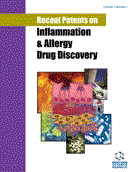Abstract
Allergic disorders, including asthma, allergic rhinoconjunctivitis, atopic dermatitis, food allergies, urticaria and anaphylaxis have significant impacts on our daily lives. Innovation of novel treatment modalities targeting effector cells, cytokines, receptors or signaling pathways may bring new alternatives in the management of diseases, including allergic disorders. Understanding the mechanisms of allergic immune response is a requisite to plan or switch to a new or an adjunctive treatment course instead of or in addition to current conventional therapies, which are almost effective and safe in most of the cases. Monoclonal antibodies are major candidates that may act on the specific targets of allergic immune response in the treatment of these disorders. As monoclonal antibodies may contribute to our designing of new treatment options within the next years, specific concerns have to be considered such as efficacy, safety, long-term tolerability of these molecules as well as identifying associations with the mechanisms of disease pathogenesis. Hereby, it is aimed to review most of the currently published clinical studies in which some monoclonal antibodies were trialed for the management of allergic disorders. This review also addressed some recently patented monoclonal antibodies and their uses.
Keywords: Allergy, atopy, asthma, allergic dermatitis, food allergy, monoclonal antibody
 8
8


















